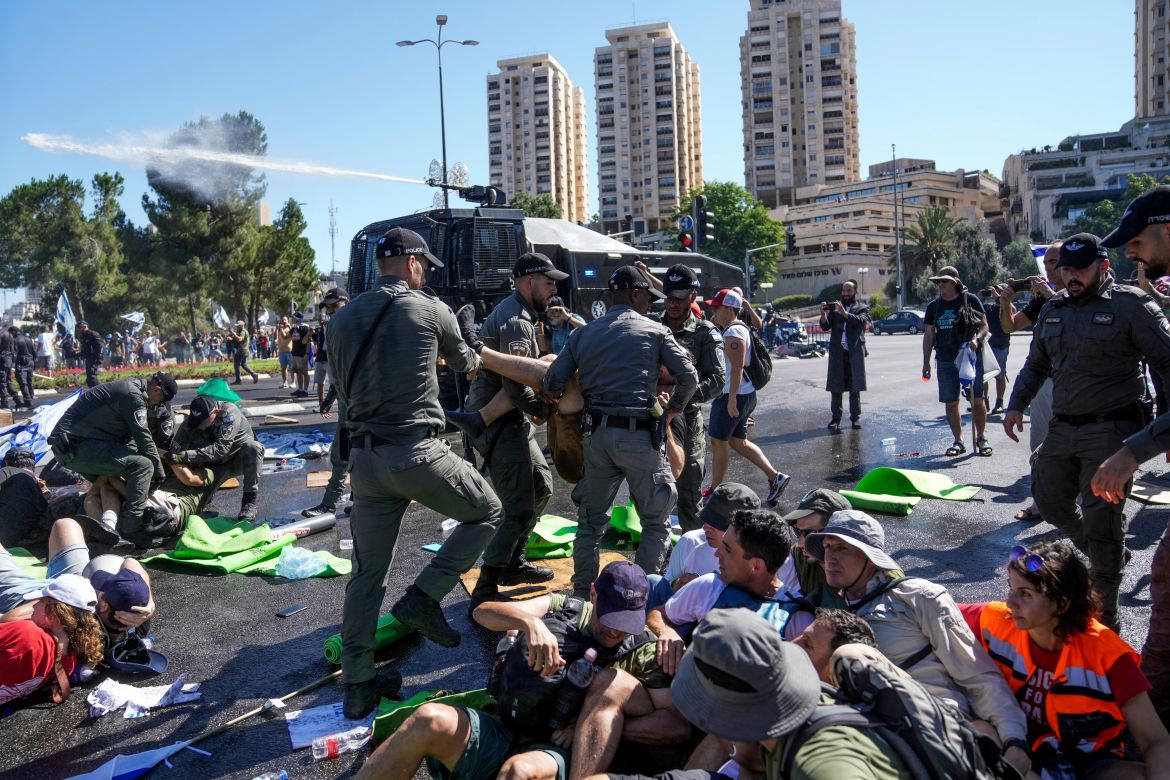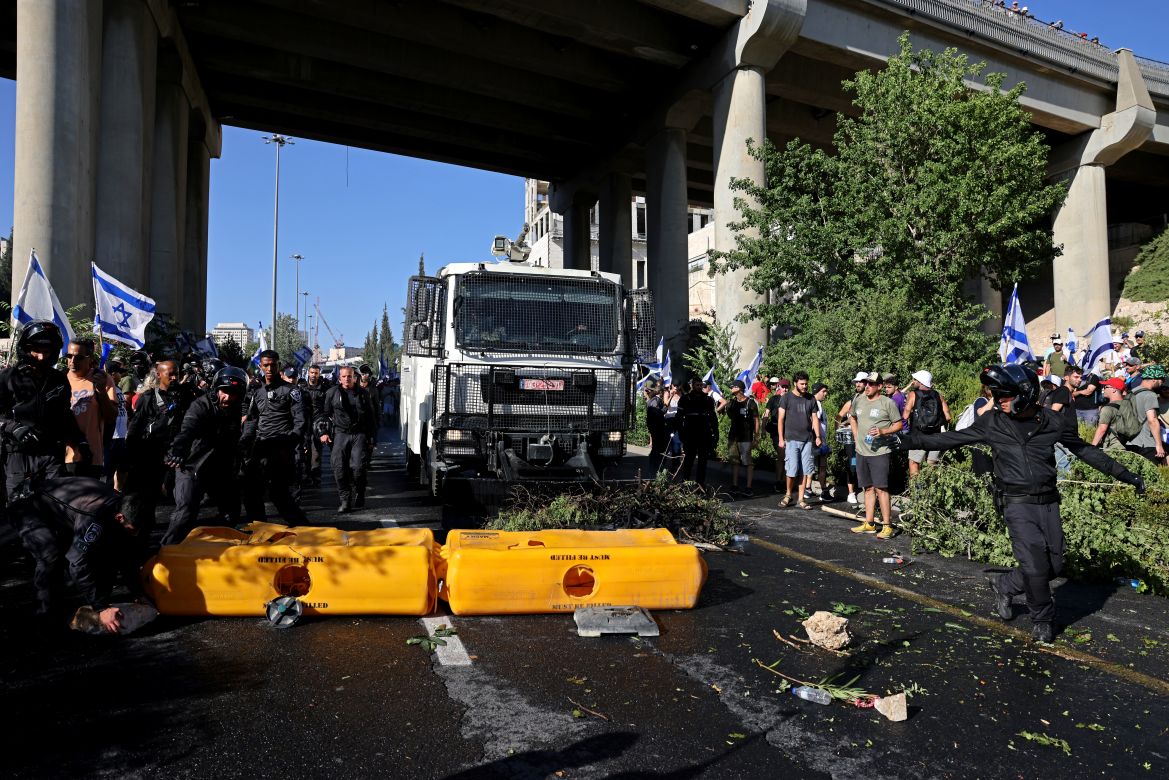In Pictures
Photos: Israelis protest as divisive law passed
More protests are expected against the controversial legislation that calls for sweeping changes aimed at curbing the judiciary’s powers.

Israeli lawmakers on Monday approved a key portion of Prime Minister Benjamin Netanyahu’s divisive plan to reshape the country’s justice system, despite massive protests that have exposed unprecedented fissures in Israeli society.
The vote came after a stormy session in which opposition lawmakers chanted “shame” and then stormed out of the chamber.
The overhaul calls for sweeping changes aimed at curbing the powers of the judiciary, from limiting the Supreme Court’s ability to challenge parliamentary decisions to changing the way judges are selected. Netanyahu and his allies say the changes are needed to curb the powers of unelected judges.
As lawmakers debated, tens of thousands of people gathered for mass rallies for and against the plan.
Further ratcheting up the pressure on Netanyahu, thousands of military reservists have declared their refusal to serve under a government taking steps that they see as setting the country on a path to dictatorship. Those moves have prompted fears that the military’s preparedness could be compromised.
With the opposition out of the hall, the measure passed by a 64-0 margin.
Afterwards, Justice Minister Yariv Levin, the architect of the plan, said parliament had taken the “first step in an important historic process” of overhauling the judiciary.
Protesters, who come from a wide swath of Israeli society, see the overhaul in general as a power grab fuelled by the personal and political grievances of Netanyahu – who is on trial for corruption charges – and his partners.
Earlier, demonstrators, many of whom feel the very foundations of their country are being eroded by the government’s plan, blocked a road leading to the Knesset or parliament. Big mall chains and some gas stations also shuttered their doors in protest.
More mass protests are now expected, and the Movement for Quality Government in Israel, a civil society group, immediately announced it would challenge the new law in the Supreme Court.
The grassroots protest movement condemned the vote, saying Netanyahu’s “government of extremists is showing their determination to jam their fringe ideology down the throats of millions of citizens”.
“No one can predict the extent of damage and social upheaval that will follow the passage of the legislation,” it said.








